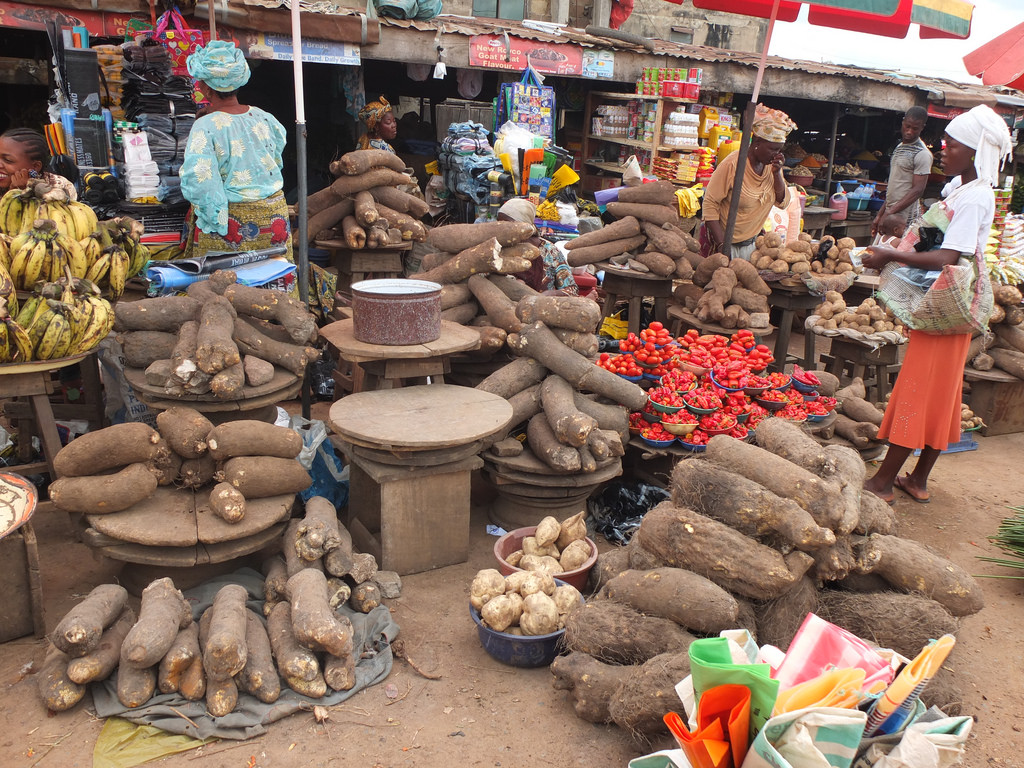It stated that the rise in food inflation was caused by increases in prices of Millet Whole grain, Garri, Guinea corn, etc (Bread and Cereals Class), Yam, Water Yam, Coco Yam (Potatoes, Yam & Other Tubers Class), Groundnut Oil, Palm Oil, etc (Oil & Fats Class) and Catfish Dried, Dried Fish-Sadine, Mudfish (Fish Class), etc.
Our correspondent reports that the inflationary report reflects the high food prices in the country which have worsened the plight of Nigerians with many households unable to afford three-square meal.
But the NESG CEO stated that the trend might continue unless there’s a deliberate drive to address food security challenges.
He also stated that Nigeria is suffering from the unintended consequences of mis-governance and called for more transparency and accountability across the governance value chain to tackle the systemic challenges.
Similarly the NESG boss called for a forensic audit of the outstanding foreign exchange obligations as a measure of boosting confidence in the economy and attracting more foreign direct investments.
According to him, the recent policy of the federal government granting waiver on food importation was ‘a hunger response’ to tackle the widespread hunger in the land but the response is not sufficient.
He stated that the policy however became a fait accompli because the country is not on track to produce enough food locally going by the low cultivation rate.
Aduloju stated that the country must get the food system back to work through large scale farming which can be achieved with states leveraging on their comparative advantages.
“We cannot afford to not scale the food system to respond to the demand needs of Nigerians,” he said, adding that government must equally be ready to scale up cultivation in dry season farming.
He said the NESG saw the food crisis coming and made a noise about it, saying it was aggravated by the electioneering which saw reduced farming activities.
“We have a system problem where we are cultivating far less and the agricultural contribution to the GDP is very low and the system is not producing enough food,” he said.
Aduloju however stated that the NESG is “cautiously” optimistic about the rebound of the economy going by its direct interactions with those in government.
From the monetary side, the NESG CEO stated that while the CBN continues to attack inflation through raising MPR which invariably hikes the lending rates, he said removing the opacity in the management of the foreign exchange market and the foreign reserve is a good news that must be acknowledged.
He also commended the progress achieved in clearing the foreign exchange forwards and called for some forensic auditing in validating fx claims that are still outstanding.
“Is there any respite in terms of policies that might signal productivity? We think the major good news is that there is more transparency on the monetary policy side. We went from a period of opacity in monetary policy where nobody could tell us what is in our reserve, nobody could tell you where our Ways and Means were to at least where we are now dealing with the knowns. How much of (fx) forwards have been made? There’s clarity on that…,” he said.

 Join Daily Trust WhatsApp Community For Quick Access To News and Happenings Around You.
Join Daily Trust WhatsApp Community For Quick Access To News and Happenings Around You.

